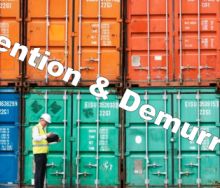Once considered a fringe concept, electric trucks have become a tangible solution to reducing carbon emissions and operating costs in the transport sector, says Joubert Roux, co-founder of renewable energy company, Zero Carbon Charge.
During a recent visit to China, he saw how the Asia giant was pioneering a shift away from diesel trucks through a range of government incentives, including subsidies and tax exemptions for the development and adoption of electric trucks.
“This has included an investment in new battery technology, which has resulted in the development of high-capacity, fast-charging batteries that can power trucks over long distances.”
Consequently, adds Roux, the Chinese government is also investing in a comprehensive network of truck charging stations along major freight routes across the country.
He emphasises that other countries are fast following suit, with International Energy Agency’s (IEA) Electric Vehicle Outlook 2024 report highlighting that electric truck sales in Europe increased almost threefold in 2023, with more than 10 000 trucks purchased.
“European electric truck sales are expected to shoot up to 44% by 2033, with some manufacturers having set their own targets far higher.
“Daimler, for instance, is targeting exclusively zero-emissions trucks in the EU by 2039.”
Mindful of what’s happening abroad to decarbonise road freight, Roux believes it’s critical that the necessary systems and infrastructure are put in place by the local transport sector to keep up with the coming global electric truck revolution.
He says it’s inspiring to see the move to electric trucks has already begun
“Several manufacturers have introduced electric trucks into the South African market, and retail giants like Takealot, Shoprite and Woolworths have started to include them in their fleets to varying degrees.”
On Tuesday, May 21, Daimler Truck SA will be holding an e-mobility event that will dominate the daily road freight agenda in Gauteng.
Such developments underpin Roux’s notion that the benefits of electrical trucking are numerous, minimising carbon emissions and reducing fuel and operating costs.
“Our data shows that over 8 500 trucks drive the busy N3 route between Johannesburg and Durban daily.
“Substituting an electric vehicle on this route would save an estimated 670kg in CO2 emissions each. But there is also significant added value in a move to electric trucks, with savings on fuel and fuel import costs.”
More importantly, he warns that as countries and regions like the European Union start to implement carbon taxes on certain categories of imports, businesses should be looking to reduce carbon emissions throughout their entire value chain.
“South Africa, where the majority of freight is moved by trucks on our roads, cannot afford to ignore the switch to electric trucks. But when it comes to long-haul movement, there are some important considerations that may be causing retailers and logistics managers to take a wait-and-see approach.
“The first is the availability of vehicles in the market. While some manufacturers have already launched vehicles in South Africa, options are still somewhat limited. Of chief concern is the range that these vehicles can travel on a single charge, which may influence whether they’re being used on city, regional or long-haul routes.
“With ranges of between 250 and 500km, most of the electric trucks available in our market would not be able to make the trip between Johannesburg and Durban without stopping to charge,” which brings Roux to his area of speciality.
“The second consideration therefore is charging infrastructure. Major retailers running big fleets will have to consider charging infrastructure at their depots. Of consideration here will be how that charging infrastructure is powered. It is estimated that approximately eight billion kilowatt-hours of energy will be required per year to power South Africa’s electric truck fleets, ruling out grid-tied options.
“Zero Carbon Logistics plans to take some of the charging infrastructure pain out of the equation by building 120 truck charging stops along South Africa’s main trucking routes, starting with its recently launched N3 project. And like our passenger vehicle charging sites, this network of stops will be entirely off-grid, allowing trucks to stop and fully charge in as little as 20 minutes.”













